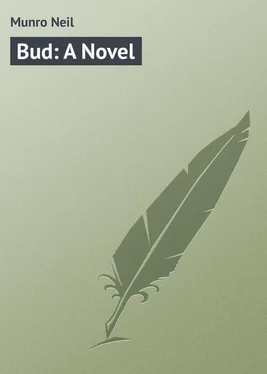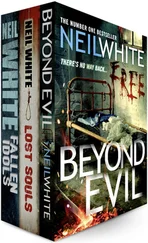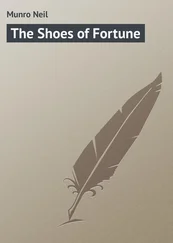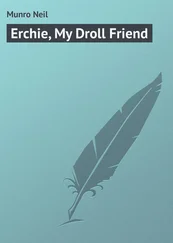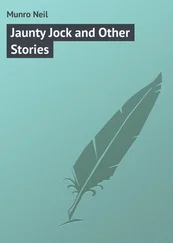Neil Munro - Bud - A Novel
Здесь есть возможность читать онлайн «Neil Munro - Bud - A Novel» — ознакомительный отрывок электронной книги совершенно бесплатно, а после прочтения отрывка купить полную версию. В некоторых случаях можно слушать аудио, скачать через торрент в формате fb2 и присутствует краткое содержание. ISBN: , Жанр: foreign_prose, на английском языке. Описание произведения, (предисловие) а так же отзывы посетителей доступны на портале библиотеки ЛибКат.
- Название:Bud: A Novel
- Автор:
- Жанр:
- Год:неизвестен
- ISBN:http://www.gutenberg.org/ebooks/43731
- Рейтинг книги:5 / 5. Голосов: 1
-
Избранное:Добавить в избранное
- Отзывы:
-
Ваша оценка:
- 100
- 1
- 2
- 3
- 4
- 5
Bud: A Novel: краткое содержание, описание и аннотация
Предлагаем к чтению аннотацию, описание, краткое содержание или предисловие (зависит от того, что написал сам автор книги «Bud: A Novel»). Если вы не нашли необходимую информацию о книге — напишите в комментариях, мы постараемся отыскать её.
Bud: A Novel — читать онлайн ознакомительный отрывок
Ниже представлен текст книги, разбитый по страницам. Система сохранения места последней прочитанной страницы, позволяет с удобством читать онлайн бесплатно книгу «Bud: A Novel», без необходимости каждый раз заново искать на чём Вы остановились. Поставьте закладку, и сможете в любой момент перейти на страницу, на которой закончили чтение.
Интервал:
Закладка:
“I hope you’ll come in sometimes and see me whiles at night and join in a glass of toddy,” said Mr. Cleland.
“I’ll certainly come and see you,” said Dan Dyce. And then he put his arm affectionately through that of his old partner, and added, “I would – I would ca’ canny wi’ the toddy, Colin,” coating the pill in sweet and kindly Scots. Thank God, we have two tongues in our place, and can speak the bitter truth in terms that show humility and love, and not the sense of righteousness, dictate.
“Eh! What for?” said Mr. Cleland, his vanity at once in arms.
Dan Dyce looked in his alarmed and wavering eyes a moment, and thought, “What’s the use? He knows himself, they always do!”
“For fear – for fear of fat,” he said, with a little laugh, tapping with his finger on his quondam partner’s widening waistcoat. “There are signs of a prominent profile, Colin. If you go on as you’re doing it will be a dreadful expense for watch-guards.”
Colin Cleland at once became the easy-osey man again, and smiled. “Fat, man! it’s not fat,” said he, clapping himself on the waistcoat, “it’s information. Do you know, Dan, for a second, there, I thought you meant to be unkind, and it would be devilish unlike you to be unkind. I thought you meant something else. The breath of vulgar suspicion has mentioned drink.”
“It’s a pity that!” said Mr. Dyce, “for a whole cask of cloves will not disguise the breath of suspicion.” It was five years now since Colin Cleland retired among his toddy rummers, and if this were a fancy story I would be telling you how he fell, and fell, and fell, but the truth – it’s almost lamentable – is that the old rogue throve on leisure and ambrosial nights with men who were now quite ready to give the firm of Daniel Dyce their business, seeing they had Colin Cleland all to themselves and under observation. Trust estates and factorages from all quarters of the county came now to the office at the windy corner. A Christian lawyer with a sense of fun, unspotted by the world, and yet with a name for winning causes, was what the shire had long been wanting. And Daniel Dyce grew rich. “I’m making money so fast,” he said one day to his sisters (it was before Bud came), “that I wonder often what poor souls are suffering for it.”
Said Bell, “It’s a burden that’s easy put up with. We’ll be able now to get a new pair of curtains for the back bedroom.”
“A pair of curtains!” said her brother, with a smile to Ailie. “Ay, a score of pairs if they’re needed, even if the vogue was Valenciennes. Your notion of wealth, Bell, is Old Malabar’s – ‘Twopence more, and up goes the donkey!’ Woman, I’m fair rolling in wealth.” He said it with a kind of exultation that brought to her face a look of fear and disapproval. “Don’t, Dan, don’t,” she cried – “don’t brag of the world’s dross; it’s not like you. ‘He that hasteth to be rich shall not be innocent,’ says the Proverbs. You must be needing medicine. We should have humble hearts. How many that were high have had a fall!”
“Are you frightened God will hear me and me His bounty?” said the brother, in a whisper. “I’m not bragging; I’m just telling you.”
“I hope you’re not hoarding it,” proceeded Miss Bell. “It’s not wiselike – ”
“Nor Dyce-like either,” said Miss Ailie.
“There’s many a poor body in the town this winter that’s needful.”
“I dare say,” said Daniel Dyce, coldly. “‘The poor we have always with us.’ The thing, they tell me, is decreed by Providence.”
“But Providence is not aye looking,” said Bell. “If that’s what you’re frightened for, I’ll be your almoner.”
“It’s their own blame, you may be sure, if they’re poor. Improvidence and – and drink. I’ll warrant they have their glass of ale every Saturday. What’s ale? Is there any moral elevation in it? Its nutritive quality, I believe, is less than the tenth part of a penny loaf.”
“Oh, but the poor creatures!” sighed Miss Bell. “Possibly,” said Dan Dyce, “but every man must look after himself; and as you say, many a man well off has come down in the world. We should take no risks. I had Black the baker at me yesterday for £20 in loan to tide over some trouble with his flour merchant and pay an account to Miss Minto.”
“A decent man, with a wife and seven children,” said Miss Bell.
“Decent or not, he’ll not be coming back borrowing from me in a hurry. I set him off with a flea in his lug.”
“We’re not needing curtains,” said Miss Bell, hurriedly; “the pair we have are fine.”
Dan finished his breakfast that day with a smile, flicked the crumbs off his waistcoat, gave one uneasy glance at Ailie, and went off to business humming “There is a Happy Land.”
“Oh, dear me, I’m afraid he’s growing a perfect miser,” moaned Bell, when she heard the door close behind him. “He did not use to be like that when he was younger and poorer. Money’s like the toothache, a commanding thing.”
Ailie smiled. “If you went about as much as I do, Bell,” she said, “you would not be misled by Dan’s pretences. And as for Black, the baker, I saw his wife in Miss Minto’s yesterday buying boots for her children and a bonnet for herself. She called me Miss Ailie, an honor I never got from her in all my life before.”
“Do you think – do you think he gave Black the money?” said Bell, in a pleasant excitation.
“Of course he did. It’s Dan’s way to give it to some folk with a pretence of reluctance, for if he did not growl they would never be off his face! He’s telling us about the lecture that accompanied it as a solace to our femininity. Women, you know, are very bad lenders, and dislike the practice in their husbands and brothers.”
“None of the women I know,” protested Bell. “They’re just as free-handed as the men if they had it. I hope,” she added, anxiously, “that Dan got good security. Would it be a dear bonnet, now, that she was getting?”
Ailie laughed – a ridiculous sort of sister this; she only laughed.
Six times each lawful day Daniel Dyce went up and down the street between his house and the office at the windy corner opposite the Cross, the business day being divided by an interval of four hours to suit the mails. The town folk liked to see him passing; he gave the street an air of occupation and gayety, as if a trip had just come in with a brass band banging at the latest air. Going or coming he was apt to be humming a tune to himself as he went along with his hands in his outside pockets, and it was an unusual day when he did not stop to look in at a shop window or two on the way, though they never changed a feature once a month. To the shops he honored thus it was almost as good as a big turnover. Before him his dog went whirling and barking, a long alarm for the clerks to stop their game of Catch-the-Ten and dip their pens. There were few that passed him without some words of recognition.
He was coming down from the office on the afternoon of the Hansel Monday that started Bud in the Pigeons’ Seminary when he met the nurse, old Betty Baxter, with a basket. She put it down at her feet, and bobbed a courtesy, a thing that nowadays you rarely see in Scotland.
“Tuts! woman,” he said to her, lifting the basket and putting it in her hand. “Why need you bother with the like of that? You and your courtesies! They’re out of date, Miss Baxter, out of date, like the decent men that deserved them long ago, before my time.”
“No, they’re not out of date, Mr. Dyce,” said she, “I’ll aye be minding you about my mother; you’ll be paid back some day.”
“Tuts!” said he again, impatient. “You’re an awful blether: how’s your patient, Duncan Gill?”
Читать дальшеИнтервал:
Закладка:
Похожие книги на «Bud: A Novel»
Представляем Вашему вниманию похожие книги на «Bud: A Novel» списком для выбора. Мы отобрали схожую по названию и смыслу литературу в надежде предоставить читателям больше вариантов отыскать новые, интересные, ещё непрочитанные произведения.
Обсуждение, отзывы о книге «Bud: A Novel» и просто собственные мнения читателей. Оставьте ваши комментарии, напишите, что Вы думаете о произведении, его смысле или главных героях. Укажите что конкретно понравилось, а что нет, и почему Вы так считаете.
